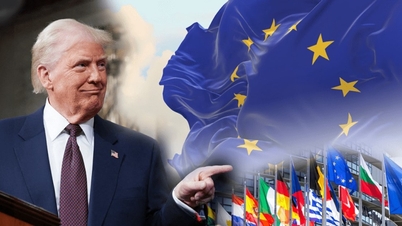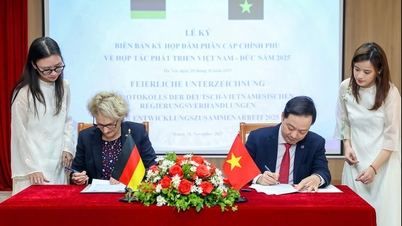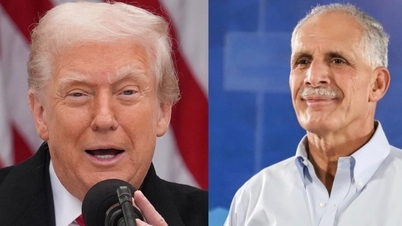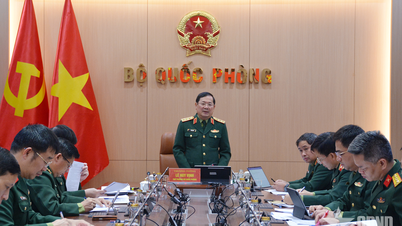In its newly released National Security Strategy, Chancellor Olaf Scholz's government identifies Germany as having a "special responsibility" for peace , security, stability, and prosperity.
Reuters reported on June 15th that this is the first National Security Strategy in German history. According to DW, although Germany had previously issued numerous policy documents related to security, Berlin had never published a comprehensive strategy. As early as the end of 2021, the German government agreed to develop "a more comprehensive strategy" in light of Germany's perceived failure to address emerging global threats.
The National Security Strategy, developed under the leadership of the German Foreign Ministry, is the result of months of consultation with experts and citizens across the country. Chancellor Scholz's government had initially intended to complete the drafting within the first year of his term; however, due to differing opinions during internal discussions, the document has only now been released.
The German Foreign Ministry emphasized that the National Security Strategy presents an "integrated security" approach, meaning that the security sector is viewed as a part of all other sectors (not just diplomacy and military), and similarly, each sector can contribute to improving Germany's security. The document affirms that the guiding principle for all of Germany's actions is the protection of the country and its values.
Germany is committed to supporting the building of a liberal international order that respects and upholds international law, the UN Charter, the sovereign equality of states, the right of self-determination of all peoples, universal human rights, and the non-threat or use of force. "As the most populous country and the largest economy in the heart of Europe, Germany has a special responsibility for peace, security, prosperity, stability, and the sustainable use of natural resources," the German National Security Strategy emphasizes.
 |
Chancellor Olaf Scholz (center) and cabinet members announce Germany's first National Security Strategy. Photo: Reuters |
The document identifies that Germany's security environment is undergoing profound changes. This is due to an increasingly multipolar world order. War, crises, and conflicts are negatively impacting the security of Germany and Europe. German society and economy face complex threats, including terrorism, extremism, organized crime, cyberattacks, and supply chain risks, all of which are on the rise. "With a developing economy and strong partnerships in Europe and around the world, we are addressing the challenges of our time with confidence and optimism. In a changed world, we are intensifying all efforts to ensure the safety and freedom of our country," the document states.
The National Security Strategy affirms that Germany's security is inseparable from the security of its European allies and partners. Germany's commitment to the North Atlantic Treaty Organization (NATO) and the European Union (EU) is "unwavering." Germany will spend 2% of its GDP on defense to meet NATO's targets, while also increasing investment in protecting critical infrastructure and cybersecurity capabilities. Germany's goal is to ensure "a united Europe in peace and freedom." Germany hopes to ensure the EU can continue to maintain its security and sovereignty "for generations to come," supports EU integration and expansion, and emphasizes the need for reforms within the EU. Germany also declares it will strengthen its efforts to contribute to global arms control, disarmament, and nuclear non-proliferation.
The New York Times reported that Germany's National Security Strategy has generally received positive reviews and assessments from many analysts. However, some argue that the document lacks detail, particularly regarding the budget for achieving its stated ambitions. "To a certain extent, the strategy fails to link its goals with its implementation because it doesn't clearly address the budget," commented Claudia Major, an expert at the Berlin-based Institute for International and Security Affairs.
Reuters noted that the document did not mention which threats would be Germany's priority response, nor that Berlin had not established a National Security Council to help implement the strategy. Meanwhile, AP quoted opposition leader Friedrich Merz as saying that the 76-page document released by Chancellor Scholz's government was "strategically unimportant, worthless, and meaningless," drafted without consulting Germany's allies.
HOANG VU
Source



![[Photo] Closing Ceremony of the 10th Session of the 15th National Assembly](/_next/image?url=https%3A%2F%2Fvphoto.vietnam.vn%2Fthumb%2F1200x675%2Fvietnam%2Fresource%2FIMAGE%2F2025%2F12%2F11%2F1765448959967_image-1437-jpg.webp&w=3840&q=75)



![[Photo] Prime Minister Pham Minh Chinh holds a phone call with the CEO of Russia's Rosatom Corporation.](/_next/image?url=https%3A%2F%2Fvphoto.vietnam.vn%2Fthumb%2F1200x675%2Fvietnam%2Fresource%2FIMAGE%2F2025%2F12%2F11%2F1765464552365_dsc-5295-jpg.webp&w=3840&q=75)
















































![[OFFICIAL] MISA GROUP ANNOUNCES ITS PIONEERING BRAND POSITIONING IN BUILDING AGENTIC AI FOR BUSINESSES, HOUSEHOLDS, AND THE GOVERNMENT](https://vphoto.vietnam.vn/thumb/402x226/vietnam/resource/IMAGE/2025/12/11/1765444754256_agentic-ai_postfb-scaled.png)























































Comment (0)